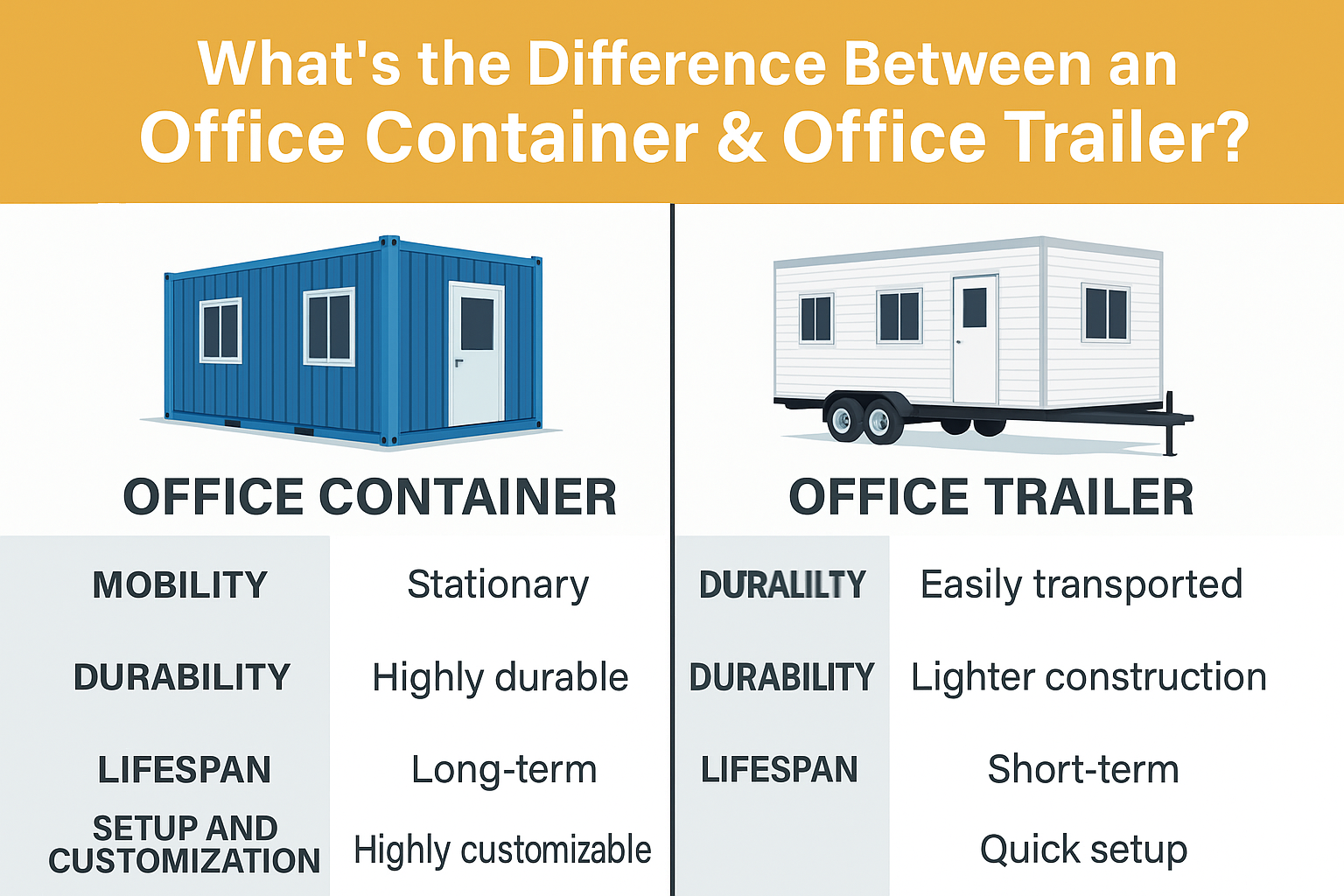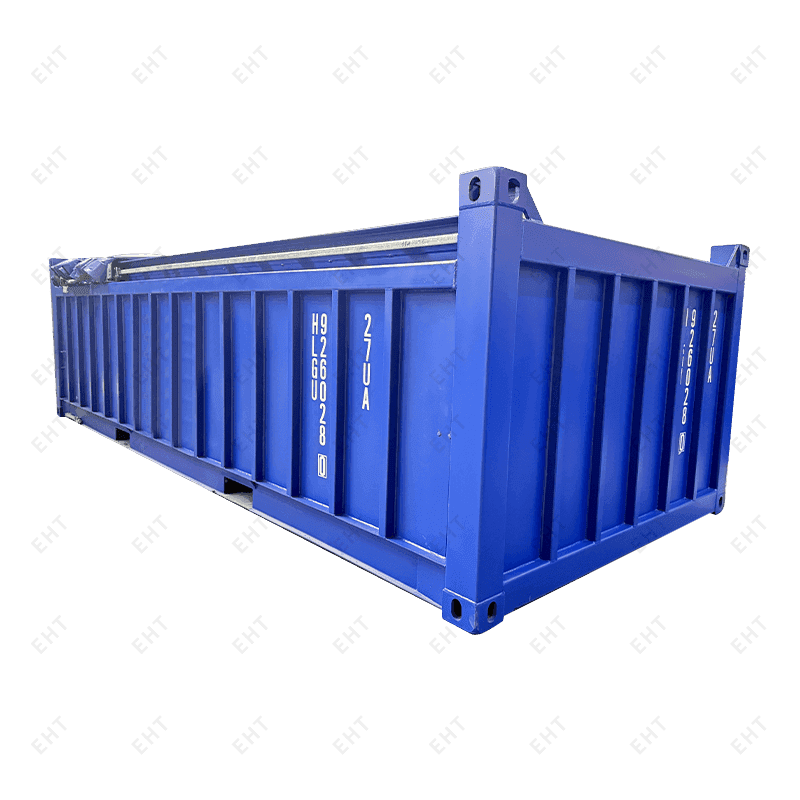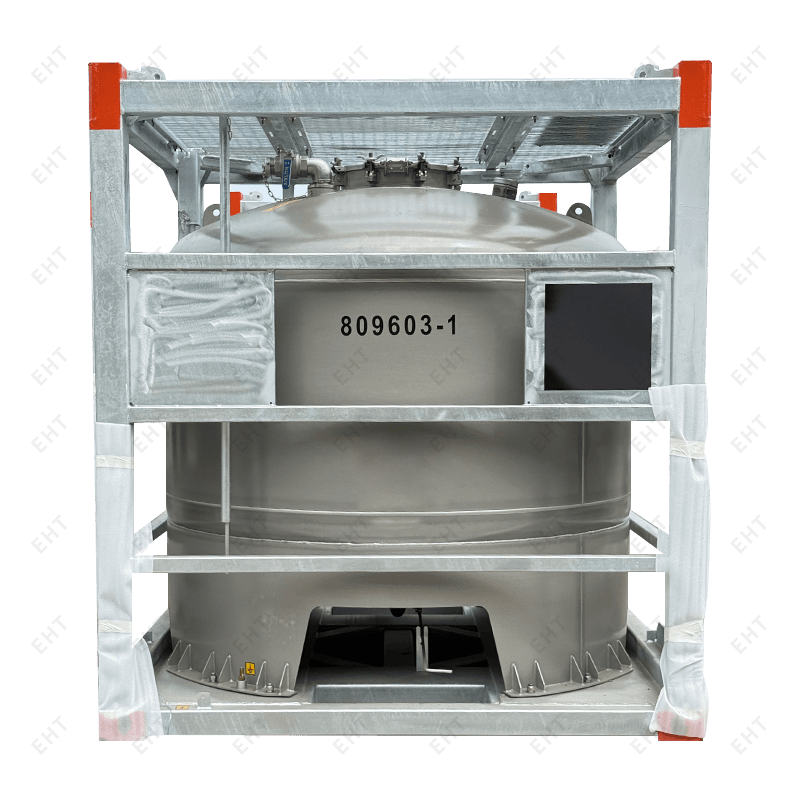Mobile office solutions have gained wide popularity as businesses look for practical ways to establish workspaces outside of traditional buildings. Whether on construction sites, industrial facilities, or short-term projects, companies often rely on portable units to provide staff with a functional and efficient working environment. Two of the most widely used options are office containers and office trailers. While both serve the same purpose of creating temporary office space, they differ significantly in design, durability, mobility, and long-term suitability.

What Is an Office Container?
An office container is typically a repurposed or newly built shipping container converted into a functional workspace. Built from durable steel, these containers are designed to withstand tough environments and provide a secure, weather-resistant office solution.
Key Features of Office Containers:
Structure: Made from heavy-duty steel, resistant to impact and harsh weather.
Customization: Can be fitted with insulation, windows, doors, HVAC systems, lighting, and electrical wiring.
Durability: Long service life due to robust construction, with minimal risk of structural damage.
Installation: Placed on a prepared foundation or directly on leveled ground, requiring minimal setup.
Office containers are especially suitable for construction sites, industrial zones, or long-term projects where a secure and permanent-feeling workspace is necessary.
What Is an Office Trailer?
An office trailer, sometimes referred to as a mobile office, is a prefabricated structure mounted on wheels or a chassis for easy transportation. They are often delivered to job sites by truck and can be quickly set up for immediate use.
Key Features of Office Trailers:
Structure: Lightweight frame construction, typically made from aluminum or steel with insulated panels.
Mobility: Designed to be moved frequently, making them ideal for temporary projects or short-term rentals.
Convenience: Pre-wired and pre-fitted with lighting, HVAC, and flooring, allowing for quick setup.
Flexibility: Can be easily relocated as projects progress or when job sites change.
Office trailers are often chosen by contractors, event organizers, and companies managing projects across multiple sites.
Major Differences Between Office Containers and Office Trailers
While both options serve as portable offices, the following distinctions highlight their unique strengths:
1. Mobility
Office Containers:Stationary once installed, moved only with cranes or specialized equipment.
Office Trailers:Easily transported from one location to another thanks to their wheeled design.
2. Durability
Office Containers:Built from solid steel, highly durable, weather-resistant, and secure.
Office Trailers:Lighter construction, not as robust against harsh environmental conditions.
3. Lifespan
Office Containers:Long-term solution, capable of lasting for decades with proper maintenance.
Office Trailers:Shorter lifespan, more suitable for temporary use.
4. Setup and Customization
Office Containers:Highly customizable with interior layouts, partitions, and specialized fittings.
Office Trailers:Quick setup with pre-designed layouts but limited customization.
5. Cost Considerations
Office Containers:Higher initial investment but lower long-term maintenance costs.
Office Trailers:Lower upfront cost, often available for short-term rental, but may require more frequent replacement.
6. Applications
Office Containers:Best for long-term projects, secure storage, and environments requiring high durability.
Office Trailers:Ideal for short-term projects, mobile teams, and events that require quick relocation.
Choosing the Right Option
When deciding between an office container and an office trailer, businesses should consider the following factors:
Project Duration: Long-term projects benefit from the durability of office containers, while temporary sites may find office trailers more practical.
Location: Remote or harsh environments favor the strength of containers, while urban or frequently changing sites benefit from trailers.
Budget: Upfront investment vs. rental costs can influence the choice depending on project timelines.
Security Needs: Office containers provide superior protection against theft and vandalism.
Conclusion
Both office containers and office trailers offer valuable solutions for portable workspaces, but their differences in mobility, durability, lifespan, and cost make them suitable for distinct scenarios. Office containers provide a secure, long-lasting choice for long-term operations, while office trailers deliver flexibility and quick mobility for short-term projects. By weighing project requirements, budget, and site conditions, businesses can make an informed decision that ensures productivity and efficiency on the job site.






